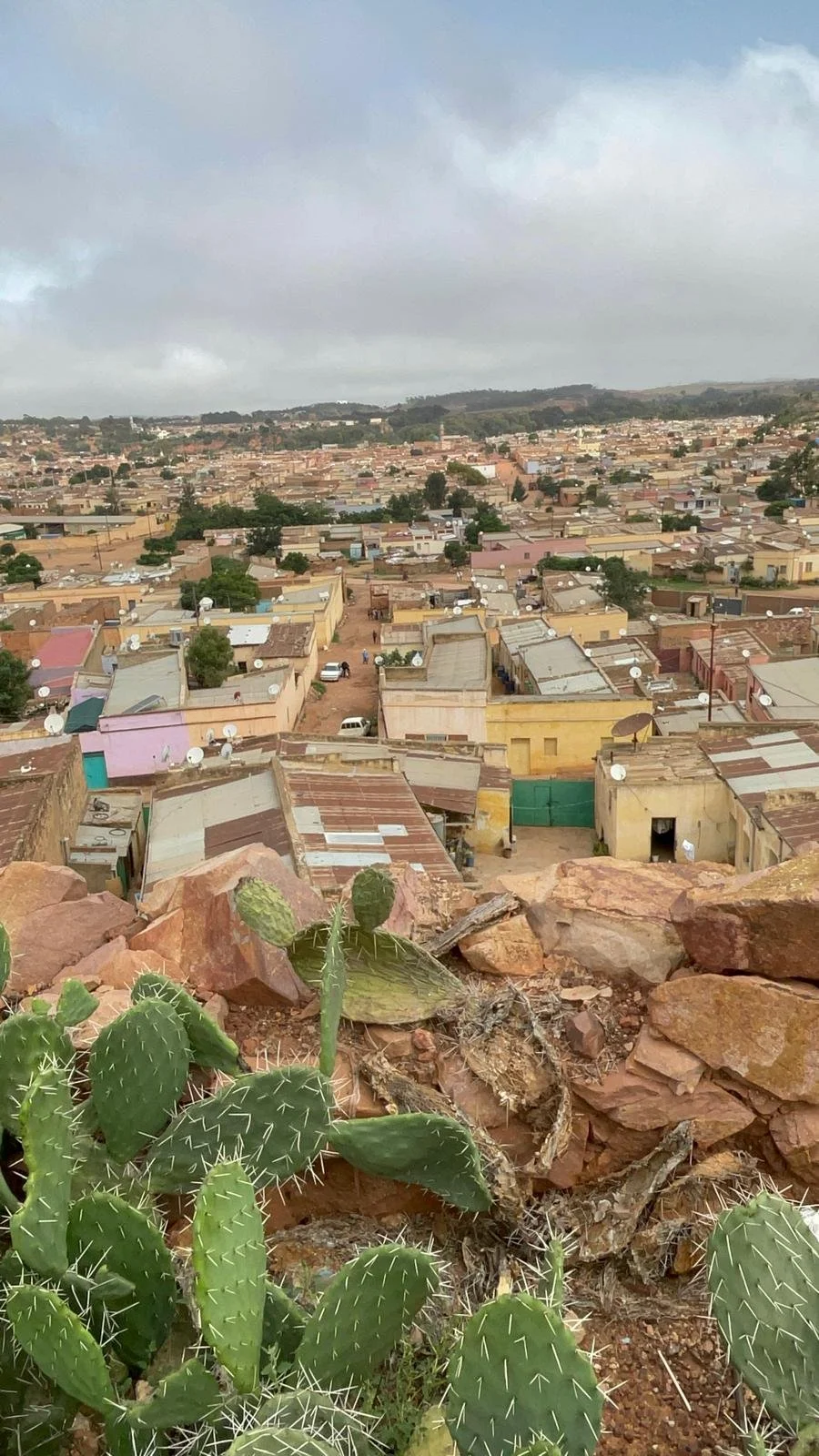“Growing up in Eritrea” Interview with Lali
Growing up in conflict, conscription, dictatorship, and prison in Eritrea
(Edited for clarity but preserving Lali’s voice)
Suburbs of Asmara, where Lali grew up
Early Childhood in Conflict
MILLA:
Do you remember how old you were when you first saw conflict in Eritrea?
LALI:
I was born in 1974. The war had already been going on since 1961, so conflict was part of life even before I understood it.
My earliest memories of fighting are from when I was maybe eight or nine. We heard the gunshots, the planes, the explosions… but as children we didn’t truly know how dangerous everything was. We just felt the fear in the adults around us.
Schooling and Life Under Ethiopian Rule (Before 1991)
MILLA:
Did the fighting change your school life?
LALI:
School existed, but nothing was normal. Before independence, we lived under Ethiopian rule, and there was constant suspicion. People were arrested for the smallest things — even for being Eritrean.
My father was taken to prison because they believed he supported the Eritrean fighters. That was very common. Anyone could be accused of helping the rebels.
Independence in 1991
LALI:
The war lasted 30 years. Eritrea became independent in 1991. Everyone hoped life would finally be peaceful. But soon after, the new government brought in mandatory national service, and what was meant to be short became something close to indefinite.
Lali’s Military Service (1994)
MILLA:
When did you join the military?
LALI:
I joined in 1994, at 19 years old. That was one of the first big rounds after independence. None of us wanted to go.
Every Eritrean has to go to Sawa, the training camp. You spend six months studying and six months doing military training. If you score high on the exam, you go to college. If not, you stay in the military for years. Some people stay for decades.
Life in Sawa
LALI:
Sawa was very hard, especially for girls. We slept in tents, no beds. We woke up at 5 a.m. with a whistle.
It was about 45°C in the summer — too hot to stand outside for long.
Our day went like this:
5 a.m.: running and physical training
Breakfast: tea and bread
Weapons training
Political lessons (we had to memorise the government’s ideology)
A break during the worst heat
More training or politics in the afternoon
Marching until around 6 p.m.
I was good at shooting and marching. But I hated it. You have no choice there. You belong to the government.
Loss and Community During the War
MILLA:
Did you have family who fought?
LALI:
Yes. Many cousins, neighbours, friends. A lot of people I grew up with died. In Eritrea, every family carries losses from the war.
Education After Sawa — and Limited Freedom
LALI:
My niece went to Sawa at 17, like everyone. She was smart and got good exam scores, so she studied at university — something with land and natural resources. She graduated after four years, but she couldn’t find a job in her field. The government placed her as a high-school teacher instead.
She wasn’t allowed a passport. In Eritrea, you cannot get one unless the government gives permission, and they rarely do.
So three weeks ago, she escaped with smugglers. Her brother paid around $10,000. Now she is in South Sudan, where her brother found her a job in a hotel.
She is educated, but she still had to run away to live freely.
Escaping Eritrea — The Dangerous Routes
LALI:
People escape to Sudan, Ethiopia, Uganda, Kenya. Some try the Sahara route to Libya — that one kills many people. They put 30 or 40 people in an open truck. If someone gets weak, they throw them into the desert.
Many Eritreans die before they even reach the sea.
That’s how desperate people are.
Dictatorship and Lack of Freedom Today
MILLA:
Is it still a dictatorship now?
LALI:
Yes. There is no freedom of speech, no free press, no religious freedom. Even praying in a small group can get you arrested.
One of my nieces — she is only 16 — was arrested with 25 other teenagers. They were praying in a Protestant house group that the government doesn’t recognise. She has been in prison for eight or nine months, and we don’t know when she will be released.
The Prison System
MILLA:
What are the prisons like?
LALI:
Very harsh. Crowded, often in metal shipping containers or bare concrete rooms. There is almost no privacy, and families have to send money so prisoners can buy food and water inside.
You can be held for months or years without ever being told why.
Several members of my family have been in prison — one brother for simply being suspected of wanting to escape, another for actually trying. In Eritrea, this is normal now.
Relations With Ethiopia
MILLA:
Do Eritreans and Ethiopians still have problems with each other?
LALI:
Not the people — only the governments. Eritreans and Ethiopians lived together for a long time. The political issues are about power and borders. Eritrea has two major Red Sea ports; Ethiopia is landlocked. That tension is political, not between ordinary people.
Where Eritreans Try to Build New Lives
LALI:
Many Eritreans now go to Uganda or Kenya to try and build a life. These places have more freedom. Inside Eritrea, you are alive, but you are not free.
